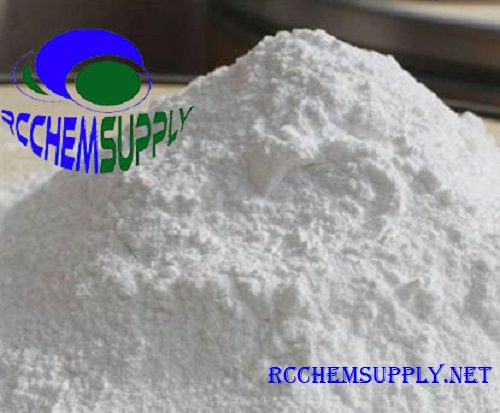Where is JWH-018 Found?
JWH 018, a synthetic cannabinoid, has been a topic of interest for researchers and law enforcement agencies alike. It is known for its psychoactive effects and is often found in products marketed as “synthetic marijuana” or “spice.” But where exactly is JWH 018 found, and how is it produced?
Synthesis of JWH 018
JWH 018 is synthesized in clandestine laboratories, often using readily available chemicals and equipment. The synthesis process involves several steps, including the reaction of a primary amine with a carboxylic acid to form an amide bond. The resulting compound is then subjected to further reactions to yield JWH 018.
Availability of JWH 018
JWH 018 is not approved for human consumption and is classified as a Schedule I controlled substance in the United States. Despite this, it is still readily available online and in some retail outlets, often marketed under various brand names. It is also found in some countries where it is not explicitly banned.

| Country | Legal Status of JWH 018 |
|---|---|
| United States | Schedule I controlled substance |
| Canada | Schedule II controlled substance |
| United Kingdom | Class B controlled drug |
| Germany | Anlage I controlled substance |
| Australia | Schedule 9 controlled drug |
Online Marketplaces
JWH-018 is primarily sourced via online marketplaces. These platforms, which frequently operate in the shadows of the internet, offer a handy way for people to buy synthetic cannabinoids such as JWH-018. Despite efforts to monitor and control online drug sales, sellers frequently avoid discovery by employing encrypted messaging platforms and cryptocurrency transactions.
Headshops
Headshops, or retail outlets that specialize in smoking paraphernalia and alternative substances, have been reported to offer goods containing JWH-018. These enterprises may offer products like herbal incense or potpourri while concealing their true nature. The availability of JWH-018 in headshops varies according to local legislation and enforcement initiatives.
Detection of JWH 018
JWH 018 can be found in a variety of biological materials, including blood, urine, and hair. JWH 018 is identified and quantified using standard laboratory procedures such as gas chromatography-mass spectrometry (GC-MS).

Adverse Effects of JWH 018
JWH 018 can have serious adverse effects, including anxiety, paranoia, hallucinations, and psychosis. It can likewise cause actual side effects, like queasiness, retching, and tachycardia. In serious cases, JWH 018 can prompt respiratory disappointment, seizures, and even demise. The unfavorable impacts of JWH 018 are because of its action at the cannabinoid receptors in the cerebrum. JWH 018 ties to these receptors with high fondness, causing a scope of impacts that can be flighty and perilous. Additionally, the synthesis of JWH 018 is not regulated, and the purity and potency of the compound can vary significantly.
Regulation of JWH 018
JWH 018 is classified as a Schedule I controlled substance in the United States, making it illegal to possess, distribute, or manufacture. However, the regulation of synthetic cannabinoids is challenging due to the ease with which they can be synthesized and the constant emergence of new compounds. The guideline of synthetic cannabinoids requires an organized exertion between policing, clinical experts, and policymakers. It is vital to stay informed about the most recent improvements in the realm of synthetic cannabinoids and to adopt a proactive strategy for guidelines and schooling.
Conclusion JWH 018 Found
JWH 018 is a synthetic cannabinoid that is synthesized in clandestine laboratories and found in products marketed as “synthetic marijuana” or “spice.” Despite being classified as a controlled substance in many countries, it is still readily available online and in some retail outlets. The detection of JWH 018 in biological samples can be challenging, but standard laboratory techniques are used to identify and quantify it.
Q: What are the risks of using JWH-018? A: JWH-018 consumption has been linked to numerous adverse effects, including hallucinations, paranoia, and elevated heart rate.
Q: Is JWH-018 legal in any country? A: The legality of JWH-018 varies by jurisdiction. While some countries have banned its sale and possession, others may have limited regulations or enforcement measures in place.
Q: How can one detect if a product contains JWH-018? A: Laboratory testing is required to confirm the presence of JWH-018 in a product. However, certain characteristics such as unusual packaging or labeling may raise suspicion.
Q: Can JWH-018 be detected in standard drug tests? A: Standard drug tests typically do not screen for synthetic cannabinoids like JWH-018. Specialized tests may be required for detection.
Q: Are there any legitimate uses for JWH-018? A: No, JWH-018 does not have any legitimate medical or industrial applications. Its production and distribution are primarily associated with recreational drug use and abuse.
Sources
•JWH-018: A Synthetic Cannabinoid in Herbal Incense Products
• Synthetic Cannabinoids: A Review of Their Pharmacology and Toxicology
• Synthetic Cannabinoids: Epidemiology, Pharmacodynamics, and Toxicology
• Synthetic Cannabinoids: A Comprehensive Review
• Synthetic Cannabinoids: An Overview of Their History, Pharmacology, and Toxicology



Pingback: Buy Legal Cannabinoids | buy synthetic cannabinoids USA | Rcchemsupply
Pingback: Where is the most trusted place to buy a JWH 018? | rcchemsupply
Pingback: What is the strongest JWH , Where to buy strongest JWH
Pingback: JWH 018 spray for sale | Where can I buy JWH 018 | Buy JWH 018 liquid
Pingback: how to make jwh-018 at home | How To Make JWH 018 Powder
Pingback: What is gravel drug ? | what is flakka drugs | zombie drugs
Pingback: Where to buy JWH 250 | JWH 250 buy online| buy JWH 250 | jwh purchase
Pingback: 6cladba for sale online | Buy 6-Cl-Adb-A from China
Pingback: What is jwh-018 ? | JWH 018 review | 1-Pentyl-3-(1-naphthoyl)indole |
Pingback: how to make homemade jwh 018 | products that contain jwh-018
Pingback: Buy Jwh-018 Fertilizer | buy bonsai fertilizer jwh 018
Pingback: What Are Flubromazolam Pellets? | Buy flualprazolam powder
Thanks very nice blog!
Pingback: Synthetic Cannabinoids | What are synthetic cannabinoids?
Your style is really unique in comparison to other people I have read stuff from.
Thanks for posting when you’ve got the opportunity, Guess
I will just bookmark this site.
eat!
Pingback: How to extract jwh-018 from bonsai fertilizer |Jwh-018 | Rcchemsupply.com